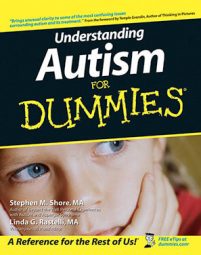If your child has been diagnosed on the autism spectrum, you need to worry more about actually understanding and treating his condition more than the clinical labels he gets stuck with. The earlier your child is diagnosed with autism, and the sooner you find the best medical care and programs available to you, to more your child will prosper.
After your child is diagnosed with autism, you need to work to get past that label. But that label is very important for two reasons:
The label is often the key to getting school, community, and medical services.
Accepting the label given to your child means that you’ve achieved an important milestone: You recognize that he or she needs help — and is on the way.
Getting good medical care after an autism diagnosis
People with autism require good medical care, both in diagnosis and in treatment. The proper medical care can help your child fulfill his or her potential and live a full and healthy life. But how do you know which doctor to trust? Credentials, although important, don’t guarantee skill or insight in a professional. You need to have your child evaluated by more than one doctor. Experts in one particular disorder are likely to see every child through that diagnostic lens.
Although many treatments are changing as doctors diagnose many new cases of autism, and the medical profession and the public are more aware today, keep in mind that most parents of autistic children see the disorder before the pediatrician does. In fact, in many cases, parents see something years before doctors formally diagnose it. You know your child’s behavior and history better than anyone. You need to communicate to professionals what problems you think he’s having that impair him the most. You want your child to be helped, not just diagnosed. Don’t allow anyone to dismiss your concerns arbitrarily. The sooner you get help, the better.
If you think your doctor isn’t taking your concerns seriously enough, you need to find a specialist and get more input. Many pediatricians don’t have the training to screen for autism because they perceive it as rare and don’t have experience with it.
Enrolling in effective early programs for autism
Experts recommend enrolling children who show symptoms of autism in educational/behavioral programs as soon as parents and professionals identify the symptoms. Sometimes the school system is the first in line to refer the child for diagnosis, but you must remember that autism is a medical diagnosis, not an educational one.
Teaching credentials don’t qualify a person to diagnose autism or other medical conditions. However, given that teachers are professionals who see many children on a daily basis, they can be very helpful in recommending an evaluation for children who they think may have trouble learning in traditional classrooms. So, if a teacher or school psychologist tells you that he or she believes your child may be autistic, you need to see a qualified professional.
A school psychologist, depending on the state and the individual’s credentials or license, can diagnose a child (known as an educational diagnosis). A school can identify and label a child with autism for purposes of providing special services within the school setting. This label may or may not qualify an individual for community-based special services outside the school setting. The opposite is also true: If a doctor diagnoses a child with autism outside the school setting, the school is required to conduct an evaluation to determine what services are required by that individual child. The school isn’t required, however, to provide a blanket set of services that the child may not even need.
Educational/behavioral interventions are intensive, structured programs where a parent or a trained therapist works with a child to systematically teach behavior and communication skills. Most programs are based on behavior modification principles; some programs teach parents to work with their autistic children; and other programs are held in preschools that target play and communicative skills.
Some things to look for in a program include the following:
Individualized attention paid to each child
Broad-based curriculum that supports social interaction, play, and communication
Systematic teaching that emphasizes outcomes (what the child should know and do)
Family participation being encouraged by the facilitators
A focus on functional skills (learning that has a purpose in the world)
Preschool-aged children can benefit greatly from a good early intervention program, and many states cover the costs under federal guidelines. With increasing diagnoses and knowledge, laws (and the funding for implementing them) are changing rapidly.

